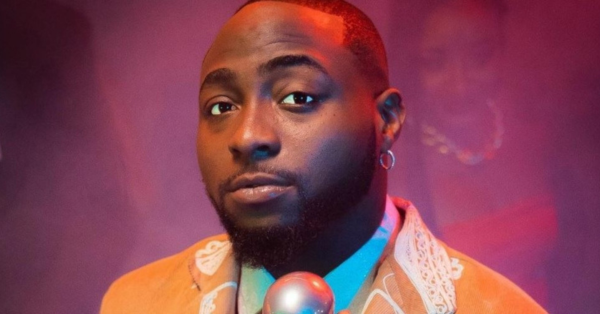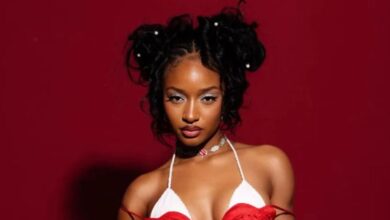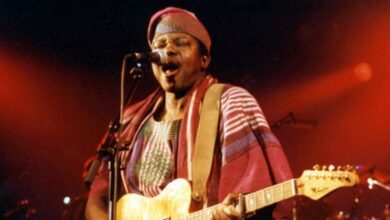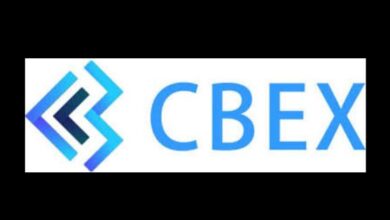Davido’s One-Room Claim: Fact or Fiction?

Afrobeats superstar Davido has always been a man of contradictions—flaunting luxury while occasionally reminiscing about humble beginnings. But his latest revelation in “CFMF,” a track off his newly released album 5ive, has reignited a heated debate: Did Davido truly rise from a one-room “face-me-I-face-you” apartment, or is this another crafted rags-to-riches tale from a man born into wealth?
The singer’s claim that his success is a product of divine intervention rather than privilege has left fans divided. While some applaud his acknowledgment of struggle, others—especially on social media—are calling it a stretch, given his billionaire father, Deji Adeleke’s well-documented fortune.

This isn’t the first time Davido has tried to sell a grass-to-grace narrative. His 2011 debut single “Back When” flopped partly because fans couldn’t reconcile his lyrics about being ignored by women when “broke” with the reality of his affluent upbringing. Yet, when he fully embraced his elite status in “Dami Duro,” declaring himself unstoppable as the son of a rich man, the streets resonated with it.
So, what’s the truth? Is Davido’s story a mix of both struggle and privilege, or is this another case of a superstar rewriting his past for relatability?
Davido’s One-Room Claim: Fact or Fiction?
In “CFMF,” Davido paints a vivid picture of his early life:
“Started in a face-me-I-face-you, now I dey for penthouse.”
For those unfamiliar, “face-me-I-face-you” is a Nigerian term for tightly packed, low-cost apartments where tenants live in close quarters—hardly the upbringing one would expect for the son of a billionaire.
But here’s where things get murky. Davido’s father, Deji Adeleke, is the founder of Pacific Holdings and has been a prominent businessman for decades. While it’s possible that Davido experienced modest living conditions at some point, the idea that he grew up in a typical “face-me-I-face-you” setup seems unlikely.
Some fans speculate that he may be referencing a brief period before his father’s wealth fully manifested or perhaps a time when he was trying to make it on his own without relying on family connections. Others, however, believe it’s pure artistic license—a way to connect with the everyday Nigerian hustle.
The Backlash: Why Are People Calling Davido Out?
Social media erupted almost immediately after the song dropped. Critics argue that Davido’s attempt to downplay his privilege is disingenuous, especially in a country where millions face real hardship.
“Davido talking about face-me-I-face-you is like Elon Musk saying he once struggled to afford ramen noodles,” one Twitter user joked.
Others pointed out that his early career was heavily bankrolled by his father, who reportedly bought him a Range Rover and funded his first studio sessions. Unlike artists like Burna Boy or Wizkid, who genuinely came from middle-class or struggling backgrounds, Davido’s rise was cushioned by wealth and connections.
Still, some fans defend him, arguing that even wealthy families can face setbacks. “Maybe his dad wanted him to experience struggle before handing him everything,” one fan theorized.
From “Back When” to “Dami Duro”: Davido’s Shifting Persona
Davido’s career has been a balancing act between embracing privilege and claiming struggle.
In “Back When” (2011), he painted himself as an underdog:
“Back when I no get money, see as dem dey do me… Now I get money, dem dey follow me.”
The song flopped—not because it was bad, but because fans saw through the narrative. How could the son of a billionaire claim women ignored him when he was “broke”?
A year later, he switched tactics. “Dami Duro” was a flex—an unapologetic anthem where he boasted:
“Mo ti darapo mo Adeleke, omo baba olowo!” (I am connected to Adeleke, the son of a rich man!)
This time, the streets embraced him. Why? Because it was authentic. People respect honesty more than manufactured struggle.
The Bigger Conversation: Can Privileged Artists Claim Struggle?
Davido isn’t the only artist to face this dilemma. Drake, for instance, grew up middle-class but often raps about hardship. Jay-Z came from the Marcy Projects but is now a billionaire. The difference? Timing and transparency.
Fans don’t mind if artists acknowledge their come-up, but they resent when privilege is erased to fit a narrative. Davido’s initial mistake was denying his advantage. When he owned it, his music hit harder.
Perhaps “CFMF” is his way of saying that despite his wealth, he still had to work for his success. But if that’s the case, he needs to frame it better—because right now, it’s sparking more skepticism than inspiration.
Final Verdict: Should Davido Own His Privilege or Keep the Underdog Story?
Davido’s talent is undeniable. His impact on Afrobeats is monumental. But his branding has always been a tightrope walk between relatable hustler and privileged superstar.
If he wants to keep referencing struggle, he should provide more context. Was there a time his family faced financial difficulties? Did he deliberately choose to live humbly before blowing up? Without clarity, the narrative feels forced.
On the other hand, if he fully embraces his elite status—like he did in “Dami Duro”—he might find even greater success. People love a winner, especially one who doesn’t pretend to be something he’s not.
One thing’s for sure: Davido’s story, whether humble beginnings or billionaire’s son, is far from over. And as long as the hits keep coming, fans will keep listening—even if they occasionally side-eye the lyrics.
What Do You Think?
Do you believe Davido’s “face-me-I-face-you” story, or is it just another exaggerated tale? Should artists from wealthy backgrounds avoid claiming struggle, or is there room for both narratives? Drop your thoughts in the comments!
Read: Martinelli Magic! Brazilian Reaches 50 Goals as Arsenal Crush Ipswich





